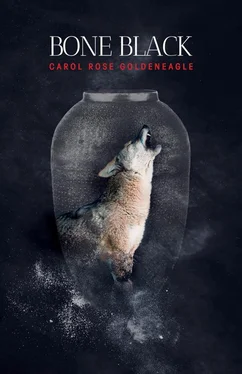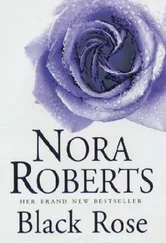Winter has arrived early. A soft snowfall covers the valley but does nothing to cleanse Wren’s spirit. She cannot shake her pain. How could something so bad happen to someone so good? Where is Raven? Wren walks and walks each day. It’s good exercise, though the activity is a reminder of those thousands of times that she walked with her sister up this bluff to gaze at the view from the top of the hill. By the time she returns to the farmhouse she is dripping, not with sweat but with tears she cannot seem to stop.
Wren finds herself unmotivated to do much of anything. She has lost her baby, lost her sister, and is now in jeopardy of losing her husband if she doesn’t get things together soon.
Three cords of wood are stacked, without a purpose, near the new outdoor kiln that Lord built months ago. Wren hasn’t been creating anything with her hands. She no longer cooks or bakes. She doesn’t clean the house. She hasn’t touched clay or paint. Today, there’s nothing on her mind but worry and despair, and it’s affecting her marriage. Lord has been supportive through it all, but still Wren worries.
Guilt is her constant companion. Every day, all she’s able to do is set the coffee for the morning then sit in the living room and wait. A hard but beautifully carved piece of furniture props her up as she stares out the window. Every morning, she is greeted by a dawn filled with questions and misery. Why did we go to bar that night? Why didn’t I stay with Raven? What could I have done? These are the queries she tortures herself with dozens of times every day. Always, there are no answers.
She no longer brushes her hair, just pulls it back into a ponytail each morning before managing to pull on the same ragged sweatshirt. It’s worn and old, a gift from Raven during their last year of high school—gold coloured, with an embroidered butterfly spreading its colourful wings. The sweatshirt brings her comfort, keeping her sister near in some way. She wears it as comfortably as an old memory.
Unanswered questions swirl around her head: Where did Raven go? Why have the police done nothing? Wren thinks of the constable’s words: “The security camera in the bar the night Raven disappeared did not pick up any clues.” A bouquet of hillbilly helium balloons obscured any footage that could have helped.
She hardly bathes anymore, even though soaking in a hot bath in her clawfoot tub used to calm her. Now, she can’t imagine enjoying even the simplest of luxuries.
Wren gets up, walking mindlessly around the house. Her thoughts go to a happy scene, even if it exists only as a wish. She imagines her sister holding her baby, kissing her and cradling the infant in her arms, as gently as someone would observe a Fabergé egg. By the time her reverie comes to an end, Wren finds she is no longer in the farmhouse but in her studio. She stares at the pottery piece she created from the remains of the fetus, and in this moment, something in Wren snaps like an elastic band stretched too far and nothing can ever be the same again. Throughout the winter, Wren’s heart breaks every time she sees or hears a raven squawking.
Wren’s thoughts turn to her husband, how much she absolutely loves him. She feels she is somehow committing acts of betrayal since she hasn’t let him touch her intimately in such a long time. Intimacy unearths bad memories, one in particular that she’d tried to forget. As she lies in bed each night, her husband tossing beside her, Wren can’t help but recall the man she first loved. Not “love” at all in retrospect, only someone who always called her baby , a generic term to mask that he couldn’t remember whom he was sleeping with.
Wren remembers the afternoon it happened, during her college years while her first-year university dorm-mate was away. Her boyfriend came over earlier than usual. Wren was feeling ill that day, but that didn’t stop him from locking the bedroom door behind him and hissing, “You’re going to get some of this,” while pulling out his erect penis. The man who called her baby violently entered Wren from behind. He grabbed her long hair the way a person holds a horse’s mane. She begged him to stop, begged him to stop hurting her. That’s when he slapped her on the side of the head so hard she thought blood would start dripping from her nose. He called her a bitch and a slut and told her she deserved nothing but a good boning.
When he finished, he pulled on his pants and left, leaving her in pain, bleeding, bruised and traumatized. Wren never saw him again. She never wanted to and vowed that if she ever ran into the bastard, he’d experience the same violation he’d inflicted on her. She vowed. That’s where she thought she’d left the memory, but it had now come back. Some things long buried can resurface and haunt.
It is another Saturday morning and Wren’s husband is doing the best he can to try and help his wife walk through her pain and move forward. He misses the smile and vibrant spirit of the woman he married, the woman who dances in the kitchen. Lord has cooked breakfast this morning: scrambled eggs and toast that he delivers on a platter to their bed, along with some advice.
“You need to start creating again,” he tells her. “You haven’t even used the new kiln I built for you and that worries me. You were so excited about it when we started building.”
Wren abruptly replies, “I need to tell you something, Lord.” She finally tells her husband that not only has she carried the heartbreak of Raven’s disappearance, she has also been coping with the loss of a baby. Their baby.
“I didn’t tell you because I thought you might reject me if you knew I wasn’t capable of carrying a child,” she sobs. Lord holds her tightly while she tries to explain further. “And I didn’t want to tell you about the pregnancy because everyone knows the first three months are the crucial months, but baby left me after only two and a half months. It happened late one night while you were sleeping.”
Wren wipes the tears from her face but she can’t look into her husband’s eyes, afraid they are too sad. He squeezes her tighter.
“Not your fault, my love. You had your reasons for wanting to keep the news to yourself. And then, Raven’s disappearance. I love you and you’ve been through too much.” Lord holds his wife and absorbs what she’s just told him. They lost a baby. He begins to weep and pulls his wife even closer. Wren buries her head in his chest.
“We can try again,” he promises. “We will try again.”
Lord feels guilt about the Magras family curse, or at least what he was told was a curse. No one can pass this threshold. They might carry disease . An irrational thought passes through his mind: Could the curse have caused the miscarriage? He spent his whole childhood without friendship and new experiences. He never had a sleepover or a movie night with friends. No hot dog roasts around a campfire in the backyard.
Lord goes downstairs to the kitchen to fetch two Perrier waters. This cannot be the reason why Raven disappeared. This cannot be the reason my wife worries she is infertile, why our child has gone away . Lord sobs into his hands, which he wipes on a tea towel before bringing the water upstairs to his distraught wife.
Lord gives thanks that the curse didn’t apply to his wife. He’s been allowed to let Wren into his life and over the threshold into his heart. Before handing her the glass of water, Lord holds her again, as tightly as he can.
“I love you so much,” he says. The couple sits in silence. Then, “You need to start creating again.”
At this point, Wren cannot bring herself to admit that she incorporated the baby’s remains into the last pottery piece that she did fire. It’s a beautiful flower vase that now sits where that wretched photo of his dead mother used to be displayed. Late one restless night, Wren moved the photo from the mantel into a rarely used spare room at the far end of the farmhouse. That upstairs bedroom was used as a guest room, even when Wren was a girl. She looked around the room for a suitable spot.
Читать дальше












